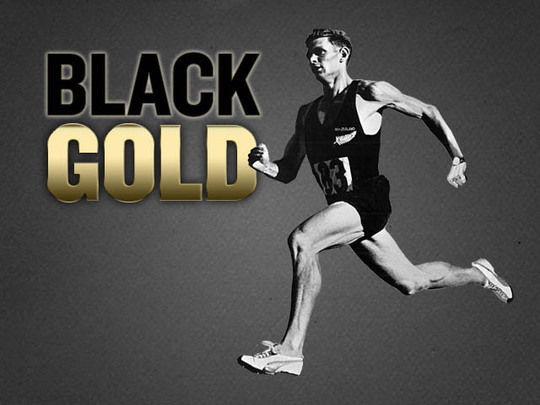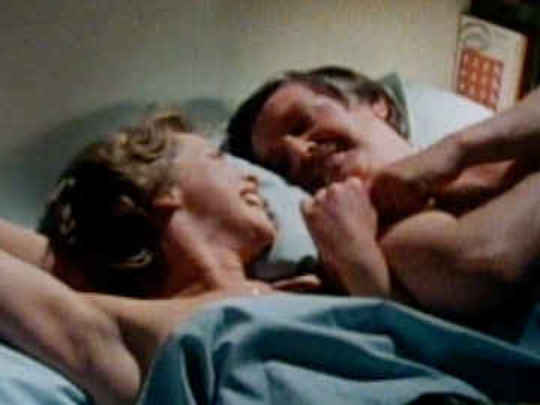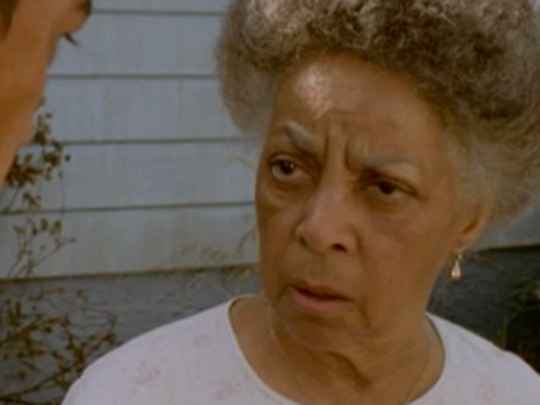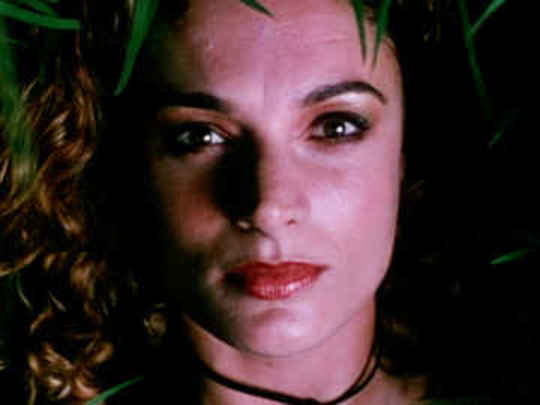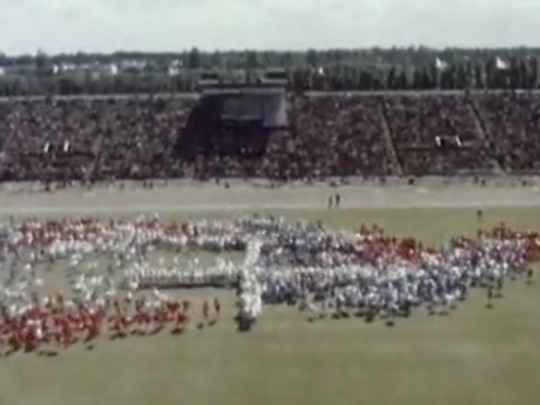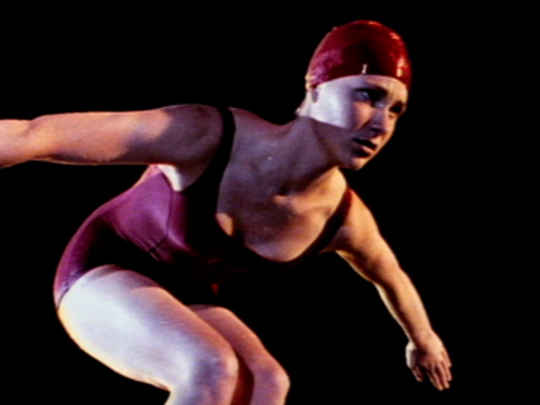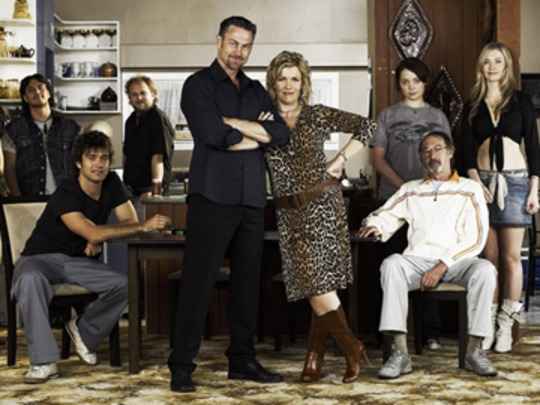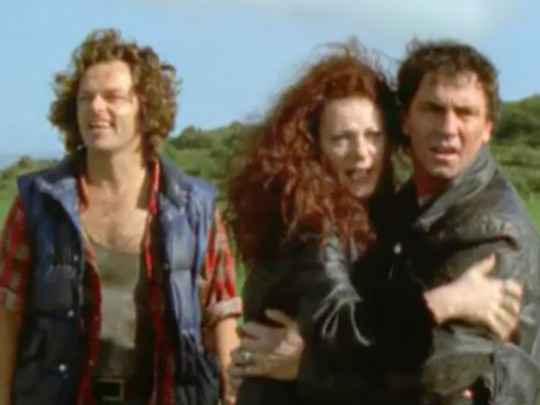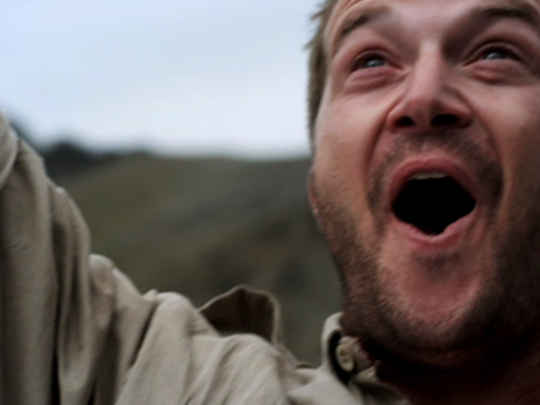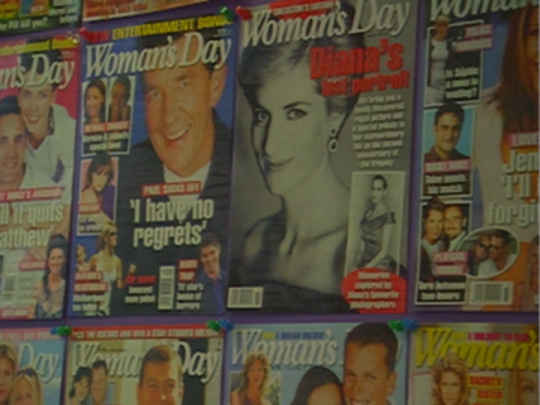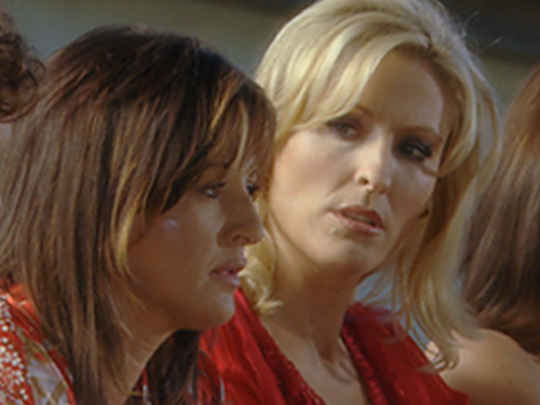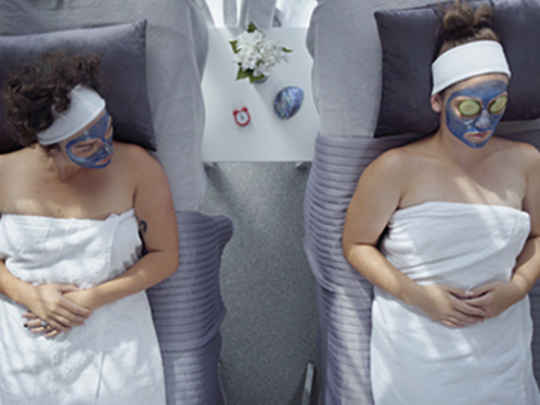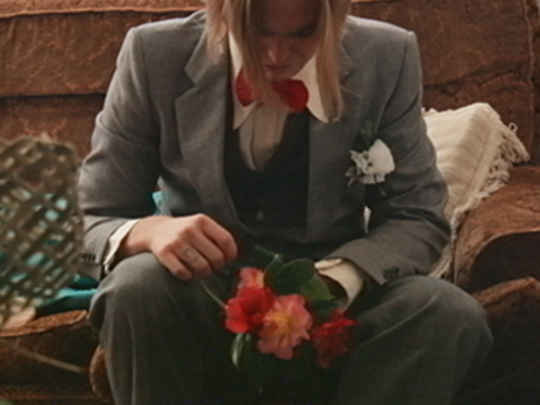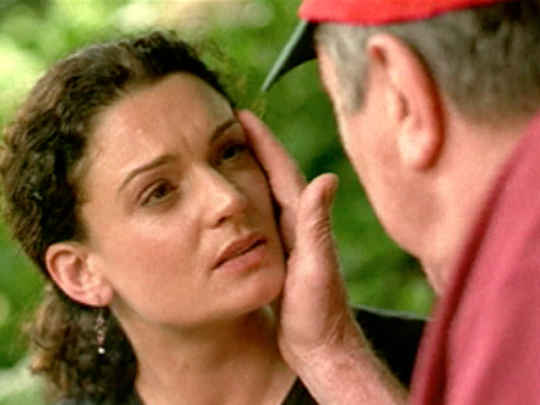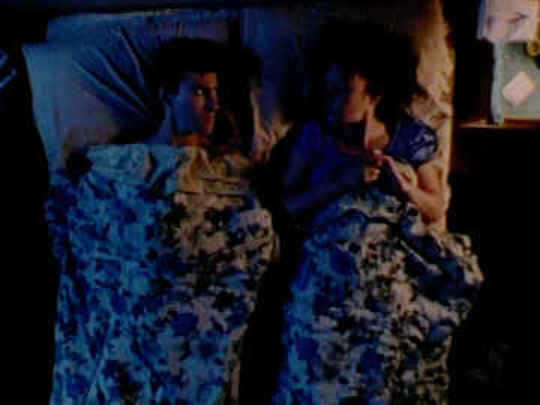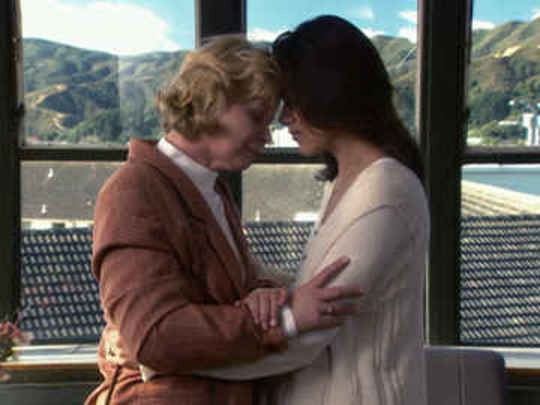Via Satellite
Film (Excerpts) – 1998
A perspective
Via Satellite is a rare case of a Kiwi play making its way onto the cinema screen. Well reviewed and superbly cast, it also marked the movie debut of playwright Anthony McCarten.
Via Satellite was based on McCarten's sixth play, which won him good audiences and a Listener Best Playwright award in 1994. McCarten had hit paydirt seven years before thanks to stripper tale Ladies Night, written with Stephen Sinclair, which became New Zealand theatre's most successful export.
By the late 90s, keen to avoid other directors "screwing up" his scripts, the multi-talented McCarten had begun directing for the stage, as well as writing plays and novels. He was also moving into film, by writing and directing two shorts.
McCarten's first full-length movie uses a small canvas — much of Via Satellite is set in just two locations (the middle class family house and the upmarket apartment of a TV director) — to examine family, fame, miscommunication and the perils of unexpected electrocution.
The film centres on a family trying to show the world a positive façade, as everything threatens to come loose at the seams. The family's star performer is Carol (Danielle Cormack), who spends the entire film elsewhere: she is a champion swimmer, off representing New Zealand at the Olympics.
A television crew want to capture the Dunn family as they're gathered together to witness Carol's victory, then broadcast the results via satellite. But as various family secrets spill out in the lead-up to the Olympic final, Carol's under-motivated twin sister Crissy grows less and less enthusiastic about joining in. Chrissy is even keener to leave them to it after learning that the cameraman (Karl Urban) is the man she just had carnal relations with.
Working with another playwright turned screen scribe, Greg McGee, McCarten makes a host of changes to his stageplay. Chief among them, they skew the balance of this drama comedy much more towards the drama.
On stage Chrissy hardly appeared, and at times there was a danger of her coming across as acerbic. Here she spends a lot more time centre-stage. Cormack has a gift for jumping directly to the humanity in her roles, and in the film's final third she finally gets the chance to make her mark, handling some emotional scenes with her customary gusto. It is hard to deny the power of her acting in the climactic scene where the twins meet via satellite.
The ensemble of family dysfunction features dominating, baby-desperate Jen (Rima Te Wiata) and her bumbling husband (McCarten veteran Tim Balme); naive, pregnant, wellmeaning sister Lyn (an award-winning performance from relative newcomer Jodie Dorday); and Mum (Donna Akersten from Middle Age Spread) who personifies parent-as-kindhearted doormat.
McCarten got the idea for Via Satellite while witnessing equestrian Mark Todd competing on TV, then watching the cameras cut to Todd's parents back in their house. There was obvious drama to be mined in the contrast between international glory and domestic ordinariness; between the champion, and the champion's family.
At home, reviews for the resulting movie were enthusiastic. NZ Herald veteran Peter Calder placed it among our best indigenous comedies to date, finding it an "effervescent, deftly paced and hilarious gem". He gave special praise to Cormack's performance. The Dominion's Matthew Grainger wrote: "A fine ensemble of eccentric Kiwi characters — not caricatures — makes this tale of trans-global fraternal rivalry and miscommunication a hilarious and touching delight that treats suburban Kiwiana with considerable respect."
Via Satellite was not the local hit some critics had predicted, earning just over half of the recently-released Topless Women Talk about their Lives. Some fingered the advertising poster (which centered around the image of a television set) as part of the problem. But the film can be seen as a stepping stone for those Kiwi screen stories that dare to walk the tightrope between laughter and something darker (a tightrope since trodden by Scarfies and TV's Outrageous Fortune).
McCarten's populist instincts help keep Via Satellite accessible despite some tough material. But it might also help explain why Via Satellite sometimes seems to be holding back its emotional punches, for fear of taking the audience into the wrong place.
When the film played to packed audiences at Cannes in the marketplace (unfortunately the high water mark for the film internationally) McCarten found himself feted, and pursued opportunities to make movies in England. Ironically those bigger, better-budgeted projects took many more years to come together than McCarten's screen debut, which he filmed in only five weeks. In the meantime Anthony McCarten has continued to write novels and scripts. In 2008 he returned home to make his second feature, Show of Hands; in 2015 he won BAFTA glory after adapting and co-producing British movie The Theory of Everything, based on out Jane Hawking's relationship with scientist Stephen Hawking.
- Ian Pryor is editor of NZ On Screen.


